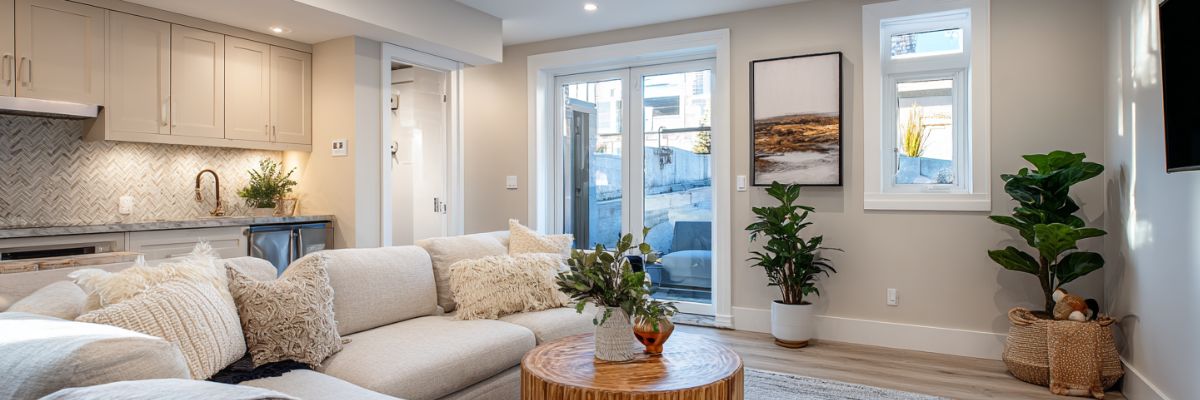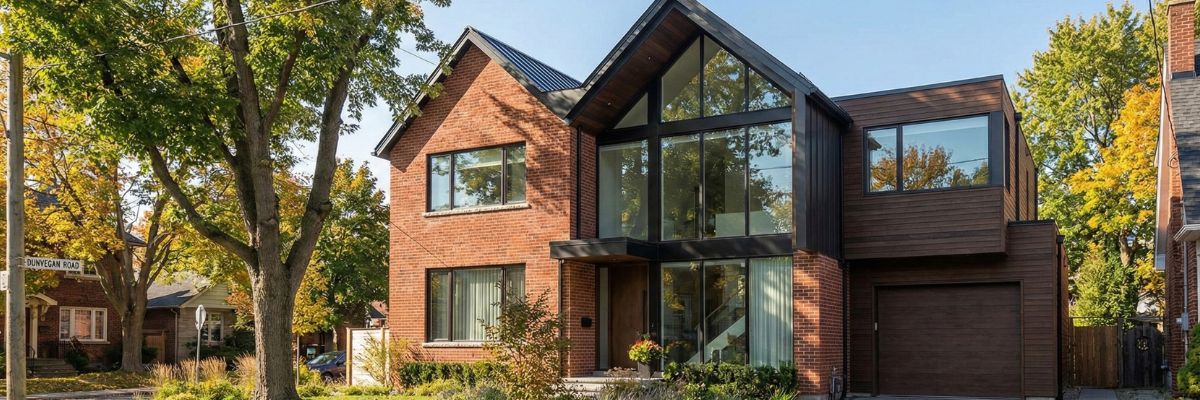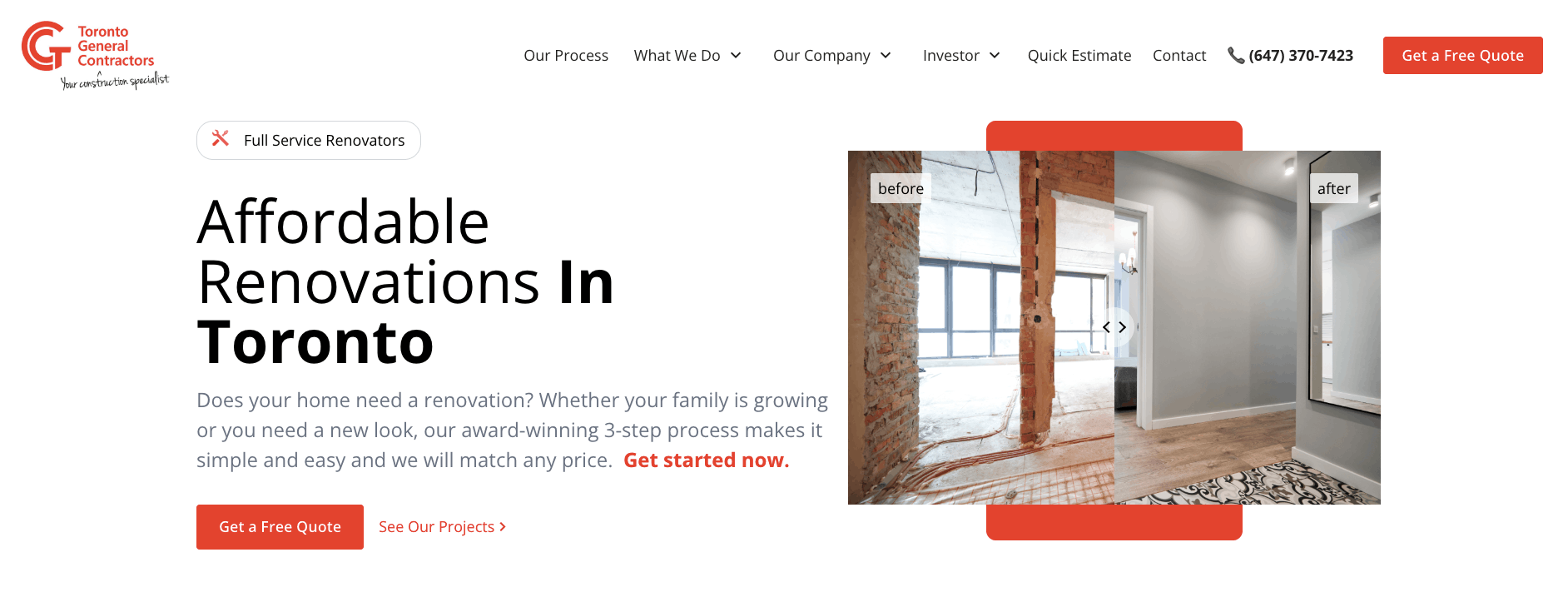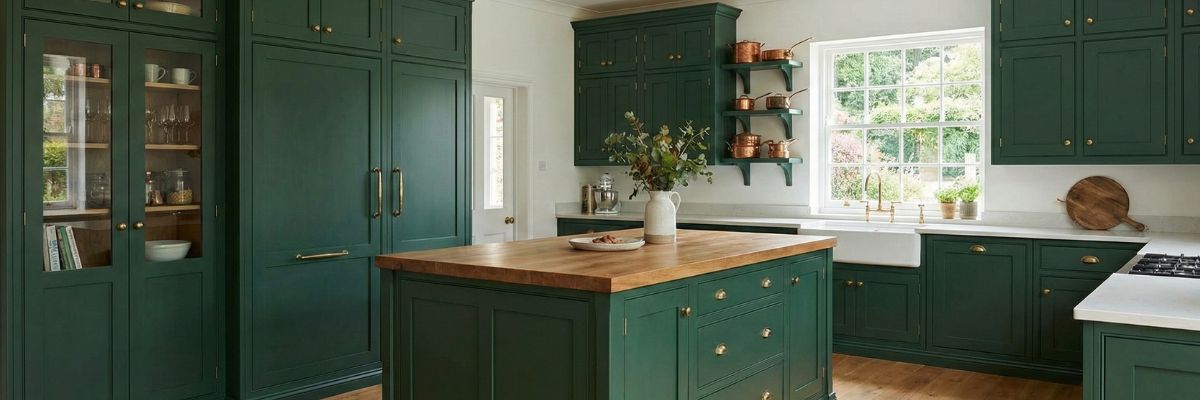How Long Does It Take To Build A House In Toronto?
The process of building a house in Toronto can take anywhere from 8 months to 12 months, depending on the complexity of the project, the type of home you’re building, the availability of permits, and how quickly decisions are made along the way.
Whether you’re building a modest starter home or a sprawling luxury residence, understanding each stage of the process can help you manage expectations, budget appropriately, and avoid unnecessary delays.
House Building Timeline
Every new build typically goes through the same three stages: design and planning, permitting, and construction. How long each stage takes depends on how complex your project is, how responsive your design team and contractors are, and how efficiently the City of Toronto processes your applications.
1. Design and Planning (1–2 Months)
The design phase is the first—and arguably one of the most critical—parts of your home-building journey. During this time, you’ll work closely with an architect, designer, or builder to determine the layout, style, materials, and specifications of your home.
Smaller or simpler homes might require as little as three months of planning, especially if you're using a builder's standard floor plans or making only minor modifications.
This phase includes:
- Initial design consultations
- Drafting and revising plans
- Structural engineering
- Site assessments
- Preparing for permit applications
2. Permit Approvals (1–3 Months)
Once your plans are complete, they must be submitted to the City of Toronto for building permit approval. The approval process typically takes 1 to 4 months, but timing depends heavily on your home’s compliance with local zoning bylaws.
If your design fits within the city’s zoning parameters, the permit can be approved fairly quickly. However, if your project exceeds any zoning limits (like building height, lot coverage, or setbacks), you may need to apply for a Committee of Adjustment hearing. This can add an additional 2 to 5 months to your timeline.
Delays can also result from:
- Backlogs during high-demand seasons
- Incomplete applications or missing documentation
- Public objections in zoning hearings
3. Construction Phase (10–12+ Months)
Once all necessary permits have been secured, construction can officially begin. This is the longest and most complex phase of the home-building process. It transforms your approved plans into a physical structure—and involves multiple trades, inspections, material deliveries, and careful sequencing. On average, a moderately-sized custom home takes 10 to 12 months to complete once construction starts. However, larger or highly customized homes may require 18 months or more for construction alone.
The construction phase consists of several distinct stages, each with its own timeline and dependencies.
Site Preparation (1–2 Weeks)
The first task is to prepare the lot for construction. This involves clearing vegetation, demolishing any existing structures, and grading the land to ensure a level base. Basic site utilities—such as temporary water supply and electricity—are also established to support ongoing construction activities.
Some properties may require additional work during this phase. For example, poor soil quality, underground obstructions (like rocks or old pipes), or the need for erosion control can all extend site prep by several days or weeks. On urban infill lots or sloped sites, more specialized preparation may be required to stabilize the ground or accommodate access for equipment.
Foundation Work (2–4 Weeks)
Next comes the foundation, which serves as the literal base of your home. The crew begins by excavating the site and building the forms for the foundation walls. Concrete is then poured and allowed to cure.
The type of foundation—whether a slab-on-grade, crawl space, or full basement—affects both cost and timeline. A slab foundation is generally the quickest, while basements involve more excavation, formwork, and waterproofing. Weather conditions during this phase are also crucial; cold temperatures can slow down concrete curing and delay subsequent framing.
Framing (1–2 Months)
Framing gives the house its basic structure and shape. Crews install the wood or steel framing for the floors, walls, ceilings, and roof, essentially building the skeleton of the home. Openings for windows and doors are defined, and rooms begin to take form.
In larger or architecturally complex homes, framing may take longer due to multiple rooflines, cantilevers, vaulted ceilings, or engineered trusses that require precise installation. Once framing is complete, the home is often described as being “dried in,” meaning it’s protected from the elements and work can continue inside.
Plumbing, HVAC, and Electrical Rough-Ins (1–2 Months)
With the structure in place, contractors begin installing essential systems. This stage includes:
- Plumbing: running water supply lines, drainpipes, and venting systems
- Electrical: wiring outlets, lighting, and service panels
- HVAC: installing ductwork, air returns, and mechanical systems
These trades must coordinate their work carefully, as each system often shares wall and ceiling spaces. After installation, rough-in inspections are required by the city. If any part of a system doesn’t meet code, revisions must be made before the build can continue. This stage is essential to long-term performance and safety, and while it often moves quickly, it can be delayed by inspection scheduling or rework.
Interior and Exterior Finishing (2–3 Months)
Once rough-ins are complete and approved, the focus shifts to finishing the home. This stage includes:
- Insulation and drywall
- Interior painting and trim work
- Flooring installation (tile, hardwood, carpet)
- Cabinetry, countertops, and millwork
- Plumbing and lighting fixtures
- Appliances and hardware
- Exterior finishes, such as brickwork, siding, roofing, and paint
The timeline for this phase varies greatly based on level of customization. A production-style home with standard finishes may move quickly, while a high-end home with marble flooring, custom millwork, or handmade tile could require additional time and specialized installers. The interior and exterior crews often work in tandem to maximize efficiency during this stretch.
Final Inspections and Occupancy (1–2 Weeks)
With all systems installed and finishes complete, the home undergoes a final series of inspections. City inspectors will review:
- Electrical, plumbing, and HVAC systems
- Smoke and CO detectors
- Fire safety and egress points
- Structural and code compliance
If the home passes all inspections, the city issues a Certificate of Occupancy, allowing you to legally move in. If there are deficiencies—such as minor code violations or unfinished elements—the builder will need to address them before reinspection. These final steps may seem minor but are crucial to legally closing out the project.
.jpg)
Total Timeframe: From Start to Finish
When you consider all three stages together—design, permits, and construction—the entire home-building process in Toronto usually takes between 8 to 12 months, depending on complexity and efficiency.
Common Scenarios
- Simple or small home: 10–12 months total
- Average custom home: 16–24 months
- Large or luxury custom home: 24–30 months or longer
These timelines assume proactive decision-making, experienced professionals, and no major delays. Unforeseen events—like supply chain issues, contractor illness, or permit complications—can easily add weeks or months to your build.
Key Factors That Influence the Build Timeline
Complexity and Size of the House
Larger homes with more rooms, more complex structural elements, and premium features (such as wine cellars, home theaters, or smart systems) naturally take longer to design and construct.
Custom Design Requirements
Fully custom homes require more input and revision than semi-custom or pre-designed builds. The more unique your vision, the more time you'll spend finalizing details.
Permit and Zoning Processes
Homes that require minor variances or exceed local zoning rules need extra layers of approval through the Committee of Adjustment. These hearings have set scheduling cycles that can’t be rushed.
Weather Conditions
Toronto’s weather plays a major role, especially in the early construction stages. Snow, ice, and heavy rain can pause work like foundation pouring or framing.
Material and Labour Availability
During busy construction seasons or economic slowdowns, lead times for materials (windows, cabinets, tile, etc.) and tradespeople (electricians, plumbers, framers) can increase drastically.
Speed of Decision-Making
Homeowners who delay in selecting finishes or request frequent design changes can bottleneck the build. A timely, decisive approach keeps projects moving smoothly.
Final Thoughts: Building in Toronto Requires Patience and Planning
Building a house in Toronto takes between 8-12 months, with some projects running longer.
Working with an experienced builder and architect, setting realistic expectations, and maintaining open communication throughout the project will go a long way toward minimizing delays. Building a home isn’t just a financial investment—it’s a time investment. But when done right, the end result is worth every step.
If you're considering building in Toronto, now is the time to start planning. By understanding the timeline upfront, you’ll be better equipped to make informed decisions and enjoy the journey from foundation to finished home.
Ready to take the next step? Contact Toronto General Contractors today for a consultation and discover how we can help turn your vision into reality—on time and on budget.
Frequently Asked Questions About Home Building In Toronto
How long does it take to build a house in Toronto from start to finish?
For a typical custom home, the entire process—from design to move-in—takes 8 to 12 months, depending on the complexity of the project. Smaller, simpler builds may be completed in 10–12 months, while large or highly customized homes can take two years or more.
What is the fastest type of home to build in Toronto?
The fastest builds are usually smaller homes with simple layouts, especially if they use pre-approved designs or prefabricated elements. These can often be completed within 10 to 12 months, including design, permitting, and construction.
How long does it take to get building permits in Toronto?
Standard building permits are usually processed in 1 to 4 months. However, if your project requires zoning variances or a Committee of Adjustment hearing, you may need to add another 2 to 5 months to that timeline.
Can I speed up the home-building process?
You can reduce delays by working with experienced professionals, submitting complete permit applications, making decisions quickly on finishes and materials, and avoiding mid-build changes. However, some factors—like permit wait times or weather—are beyond your control.
Does the time of year affect how long it takes to build?
Yes. Starting construction in spring or early summer is ideal, as it allows key exterior work (excavation, framing, roofing) to be completed before winter. Cold weather can slow down or pause certain stages of the build.
What causes delays when building a custom home?
Common delays include permit issues, slow design decisions, backordered materials, labor shortages, and weather. Custom changes during construction—also known as change orders—are another major source of unexpected delays.
How long should I spend on the design phase?
For most custom homes, the design phase takes 3 to 6 months, depending on complexity. Rushing this phase can lead to costly changes later, so it’s wise to take your time and ensure your plans are detailed and accurate.
Do I need a general contractor to build a house in Toronto?
While it’s not legally required, hiring a licensed general contractor or builder is strongly recommended. They coordinate trades, ensure code compliance, handle inspections, and help you stay on schedule and on budget.



.jpg)



.jpg)

.jpg)
